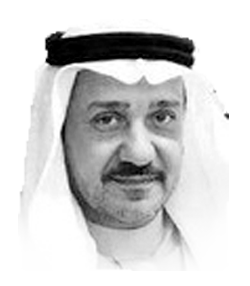 JEDDAH: Attacks last month on Saudi oil facilities were an attack on the heart of the global energy industry, as Crown Prince Mohammad bin Salman has pointed out. The region accounted for about 30 percent of the world’s energy supplies and 4 percent of its GDP, and about 20 percent of global trade passed through the Gulf, the crown prince said in a TV interview broadcast on Sunday night.
JEDDAH: Attacks last month on Saudi oil facilities were an attack on the heart of the global energy industry, as Crown Prince Mohammad bin Salman has pointed out. The region accounted for about 30 percent of the world’s energy supplies and 4 percent of its GDP, and about 20 percent of global trade passed through the Gulf, the crown prince said in a TV interview broadcast on Sunday night.
“Imagine if all of these three things were to stop. That would mean a total collapse of the global economy, and not just Saudi Arabia or the countries of the Middle East,” he said.
We visited Abqaiq — the heart of the global energy industry to which the crown prince was referring — and we were amazed by the efforts of the young Saudi engineers working there.
Two weeks after the drone and missile strikes on the oil installations, work is continuing and production is back to its pre-attack levels.
The world has praised Saudi Aramco for putting out the fires in record time, and for the remarkable repair operations that followed.
The many Aramco officials we spoke to had only praise for the teams of engineers who carried out this work; their excellence, their innovation and their courage made us all proud, one senior manager said.
Watching a video of the attack, we were impressed with the young Saudi engineer who kept spraying water on the blazing tanks to reduce the heat and avoid further explosions. He reacted quickly, while still implementing all the relevant safety rules. And although he is a relative newcomer — a company employee for only 18 months — he kept his cool even as the attacks were in progress.
While the fires were being extinguished, different teams were working simultaneously to assess the damage, and with the first part of the job done the second important step was on everyone’s mind: To get production back on track.
After the initial assessment, some thought that to have the tanks ready even to be repaired might take three to four weeks if the usual procedures were followed; as one engineer explained, there were residual gases inside the tanks that would usually take weeks to clear.
However, a young Saudi engineer and a veteran Aramco supervisor with 40 years’ experience worked together to come up with an ingenious solution that enabled the tanks to be safely welded without further problems.
Some Aramco staff have grown up with the company, the third generation of their families to work there. Others had never set foot in any Aramco facility before they joined. All, however, share the same pride in being part of this giant, and are happy to call themselves “Aramcons.” They take pride in being problem solvers, not only on the rigs but everywhere they work.
This also applies to former Aramco engineers, expatriates who have never lost their connection with the company. Many were quick to offer their services after the attacks.
Aramco has many assets, but the most valuable is its staff. “Our real wealth lies in the ambition of our people and the potential of our younger generation. They are our nation’s pride and the architects of our future,” the crown prince said.
The achievements at Abqaiq proved his every word, and justified his faith in Saudi youth.


























